Les Grands Crus De L'ouest
Château Canon-la-Gaffelière
Saint-Émilion Red Bordeaux Blend 2016
Drank 1/18/19 at the Union des Grands Crus de Bordeaux event in Miami. All wines from the 2016 Vintage.
Tasting pour, no formal notes taken. Most of these wines are very tight, and will require 5-15 years to really come together. Many will likely improve a few points with time.
Loads of red and black fruit with all the complexity you would expect. A close runner up for Right Bank WOTN for me. Always a favorite.
Count Stephan von Neipperg was pouring wine from his estate, and was happy to chat about the current vintage and other wines in his portfolio. A true gentleman. — 7 years ago
Château Cantebau
Château Dauzac Grand Cru Margaux Red Bordeaux Blend 2016
Drank 1/18/19 at the Union des Grands Crus de Bordeaux event in Miami. All wines from the 2016 Vintage.
Tasting pour, no formal notes taken. Most of these wines are very tight, and will require 5-15 years to really come together. Many will likely improve a few points with time.
This estate seems to be making some strides as of late. Nice. — 7 years ago

Clos Fourtet
Saint-Émilion Red Bordeaux Blend 2016
Drank 1/18/19 at the Union des Grands Crus de Bordeaux event in Miami. All wines from the 2016 Vintage.
Tasting pour, no formal notes taken. Most of these wines are very tight, and will require 5-15 years to really come together. Many will likely improve a few points with time.
More red fruit on this one, very elegant, but I dont necessarily understand the huge critical acclaim. A fantastic wine nonetheless. — 7 years ago

Château Pape Clément
Pessac-Léognan Sémillon-Sauvignon Blanc Blend 2016
Drank 1/18/19 at the Union des Grands Crus de Bordeaux event in Miami. All wines from the 2016 Vintage.
Tasting pour, no formal notes taken.
As usual, one of the best White wines of the night, in a vintage where the reds seem to be superior. Exotic peach and pineapple scents give way to incredible purity of fruit. — 7 years ago

Chateau Latour-Martillac
Pessac-Leognan Red Bordeaux Blend 2016
Drank 1/18/19 at the Union des Grands Crus de Bordeaux event in Miami. All wines from the 2016 Vintage.
Tasting pour, no formal notes taken. Most of these wines are very tight, and will require 5-15 years to really come together. Many will likely improve a few points with time.
Prices seem to be a bit out of control with the 2016 vintage, and if there were such thing as a "value buy" presented, this was likely it at around $40 — 7 years ago

Château Brane-Cantenac
Grand Cru Classé en 1855 Margaux Red Bordeaux Blend 2005
I have a six-pack of this 05. I thought after 10 years in bottle, it would be interesting to check in on its evolution. While tasty, I’ll wait another 8-10 to open another. Even after 2-3 hours in the decanter, it’s still a very young adolescent. On the nose, slightly sour blackberries & dark cherries, dark currants, baked black plum, haunting blue fruits, anise, whiff of spice, steeped tea, dry stones, dry crushed rocks with dry top soil, caramel, vanilla with fresh & dry red florals. The body is thick & full. Tannins are starting to round out. It’s velvety on the palate. The fruits are; bright, fresh & ripe and really show the greatness of the 05 vintage. Dark currants, blackberries, dark cherries, baked black plum, haunting blue fruits, baked strawberries, cherries, raspberries on the long set, dark spice, clay & loamy dry top soil with crushed rocks, dry stones, cigar with ash, graphite, dry stems, slight herbaceous character, mint, used leather, clove, caramel, vanilla, fresh & dry red florals with violets. The round acidity is about perfect. The structure and length are still strong. The balance is in harmony. As for the long finish, it’s lush, ruby, rich and well polished. Photos of; Chateau Brane Cantenac, large wood vats, Henri Lurton and Estate vines. Producer notes and history...Chateau Brane Cantenac began in the early 17th century. At the time, the estate was known as Domaine Guilhem Hosten. Even that far back, wine was produced from the property. In fact, the wine was so highly regarded it was one of the more expensive wines in Bordeaux. It sold for almost as much money as Brane Mouton. This is interesting because of who went on to buy the vineyard in the 1800’s. The Baron of Brane, also known as “Napoleon of the Vineyards”, purchased the Chateau in 1833. At the time of the sale, the estate was called Chateau Gorce-Guy. To get the funds needed to purchase the Margaux vineyard, the Baron sold what is now called Mouton Rothschild, which was at the time of the sale, known as Chateau Brane-Mouton. Not such a good move with hundreds of years in hindsight! In 1838, the Baron renamed property taking his name and the name of the sector where the vineyards were located and called it Chateau Brane Cantenac. The Chateau later passed to the Roy family, who were well-known in the Margaux appellation in those days, as they owned Chateau d’issan. Moving ahead to 1920, the Societe des Grands Crus de France, a group of merchants and growers that owned several chateaux located in the Medoc including; Chateau Margaux, Chateau Giscours, and Chateau Lagrange in St. Julien, purchased Chateau Brane Cantenac. Five years later, M. Recapet and his son-in-law, François Lurton, took over Brane Cantenac along with Chateau Margaux. Lucien Lurton (the son of François Lurton) inherited Brane Cantenac in 1956. Today, the estate is still in the hands of the Lurton family. Brane Cantenac is owned and run by Henri Lurton. After being given the responsibility of managing Brane Cantenac, it was under the direction of Henri Lurton that large portions of the vineyard were replanted. Vine densities were increased, the drainage systems were improved and the plantings were also, slowly changed. The vineyard of Brane Cantenac is planted to 55% Cabernet Sauvignon, 40% Merlot, 4.5% Cabernet Franc and .5% Carmenere. Carmenere was used for the first time in the 2011 vintage. The only other Chateau I know that still uses Carmenere is Clerc Milon. The 75 hectare Left Bank vineyard of Brane Cantenac is essentially unchanged since it earned Second Growth status in the 1855 Classification. At least that is the case with the 45 hectares used to produce the Grand Vin of Brane Cantenac. Those 45 hectares are planted surrounding the Chateau. Those vines are located just in front of the Cantenac plateau and are the best terroir that Brane Cantenac owns. They have other parcels, which are further inland and much of those grapes are placed into their second wine, Le Baron de Brane. Those additional hectares can be divided into 3 main sections. Behind the Chateau, they have 15 hectares of vines on gravel and sand, 10 hectares across the road with sand, gravel and iron and a 13 hectare parcel with gravel called Notton, which is used for their second wine. The vineyard is planted to a vine density that ranges from 6,666 vines per hectare on the plateau and up to 8,000 vines per hectare for the vines located behind chateau, in their sandier soils. The higher levels of vine density are always found in the newer plantings. The terroir of Brane Cantenac consists of deep gravel, sand and clay soil. Experiments in the vineyards are currently looking at becoming more organic in their vineyard management. Today, more than 25% of Brane Cantenac is farmed using organic farming techniques. It is expected that over time, the amount of hectares farmed with organic methods will be increased. Brane Cantenac has gone through 2 relatively recent modernization’s in 1999, when they added began adding the first of their smaller vats to allow for parcel by parcel vinification and then again in 2015 when they completed a much more complete renovation of their cellars and vat rooms. While Brane Cantenac is a traditional producer, they are no stranger to technology as they were one of the first estates to embrace optical grape sorting machines. In very wet vintages, they can also use reverse osmosis. To produce the wine of Chateau Brane Cantenac, the wine is vinified in a combination of temperature controlled, traditional, 22 oak vats, 18 concrete tanks and 20 stainless steel vats that vary in size from 40 hectoliters all the way up to 200 hectoliters, which allows for parcel by parcel vinification. 40% of the fermentation takes place in the oak vats. The oldest vines are vinified in vats that are selected to allow for separate parcel by parcel vinification. The younger vines are vinified more often together in the same vats. However, the Carmenere is entirely micro-vinified, meaning that those grapes were completely vinified in barrel, using micro-vinification techniques. This can also happen because the amount of grapes produced is so small. Some vats can be co-inoculated, meaning they go through alcoholic fermentation and malolactic fermentation simultaneously. At Chateau Brane Cantenac, malolactic fermentation takes place in a combination of French oak tanks and barrels. The wine of Brane Cantenac is aged in an average of 60% new, French oak barrels for 18 months before bottling. The initial 2 months of aging is done with the wine on its lees, which adds more depth to the wine. There second wine is Le Baron de Brane. Le Baron de Brane is not new. In fact, previously, the second wine went under the name of Chateau Notton, which took its name from one of the main parcels where the grapes were planted. During the late 1950’s and into the 1960’s, having a second wine was important as the estate declassified 3 vintages, due to extremely poor, weather conditions in 1956, 1960 and 1963. Production of Chateau Brane Cantenac is about 11,000 cases per year. — 8 years ago
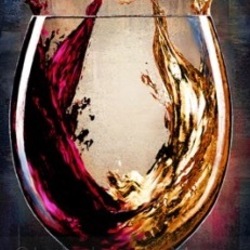
Taittinger
Comtes de Champagne Grand Crus Brut Blanc de Blancs 2000
An amazing Grands Cru full of finess. Aerien bubbles with toasted bread aromas. Great elegance. — 11 years ago
Château Beychevelle
Saint-Julien Red Bordeaux Blend 2016
Drank 1/18/19 at the Union des Grands Crus de Bordeaux event in Miami. All wines from the 2016 Vintage.
Tasting pour, no formal notes taken. Most of these wines are very tight, and will require 5-15 years to really come together. Many will likely improve a few points with time.
This was an impressive wine and was tied for most impressive St Julien in my opinion, with layers of dark, concentrated fruit and less wood influence than in years past. . This estate seems to be improving steadily over the past few years. Unfortunately, it seems like the prices have risen quite drastically as well... — 7 years ago

Château Durfort-Vivens
Margaux Second Grand Cru Red Bordeaux Blend 2016
Drank 1/18/19 at the Union des Grands Crus de Bordeaux event in Miami. All wines from the 2016 Vintage.
Tasting pour, no formal notes taken. Most of these wines are very tight, and will require 5-15 years to really come together. Many will likely improve a few points with time. — 7 years ago

Château Giscours
Margaux Red Bordeaux Blend 2016
Drank 1/18/19 at the Union des Grands Crus de Bordeaux event in Miami. All wines from the 2016 Vintage.
Tasting pour, no formal notes taken. Most of these wines are very tight, and will require 5-15 years to really come together. Many will likely improve a few points with time.
One of the more structured of the Margaux wines tasted. Should come together nicely with some time. — 7 years ago

Château Les Carmes Haut-Brion
Pessac-Léognan Red Bordeaux Blend 2016
Drank 1/18/19 at the Union des Grands Crus de Bordeaux event in Miami. All wines from the 2016 Vintage.
Tasting pour, no formal notes taken. Most of these wines are very tight, and will require 5-15 years to really come together. Many will likely improve a few points with time.
I have seen huge critical acclaim for this wine at various outlets. A great wine, that has improved in recent years, but nothing to make me purchase a case. — 7 years ago

Château La Dominique
Grand Cru Classé St. Émilion Red Bordeaux Blend 2016
Drank 1/18/19 at the Union des Grands Crus de Bordeaux event in Miami. All wines from the 2016 Vintage.
Tasting pour, no formal notes taken. Most of these wines are very tight, and will require 5-15 years to really come together. Many will likely improve a few points with time.
A very nice wine from this estate. Dominated by purple and black fruits, this one will likely drink well early and for many more years. — 7 years ago

Château Pape Clément
Pessac-Léognan Red Bordeaux Blend 2016
Drank 1/18/19 at the Union des Grands Crus de Bordeaux event in Miami. All wines from the 2016 Vintage.
Tasting pour, no formal notes taken. Most of these wines are very tight, and will require 5-15 years to really come together. Many will likely improve a few points with time.
Beautiful, well structured dark fruit. Complex, but more open than several left bank wines at this stage, as is usual for Pessac-Leognan. — 7 years ago

Domaine de Chevalier
Pessac-Léognan Red Bordeaux Blend 2016
Drank 1/18/19 at the Union des Grands Crus de Bordeaux event in Miami. All wines from the 2016 Vintage.
Tasting pour, no formal notes taken. Most of these wines are very tight, and will require 5-15 years to really come together. Many will likely improve a few points with time. — 7 years ago

Domaine Denis Mortet
Mes Cinq Terroirs Gevrey-Chambertin Pinot Noir 2014
On the nose, sweet, floral, dark cherries, touch of plum, black raspberries, raspberries, red licorice/cola, lovely funk, canopy leaf, perfumed red florals and fine, sexy, chalky minerality. The mouthfeel is beautifully crisp...medium body. The fruits are bright and tantalizing. Strawberries, dark cherries with Rainer cherries blended in, cranberries, pomegranate, plum, black raspberry, raspberries, soft, super fine powdery chalkiness, crushed dry rock powder, light beautiful spice, red florals with a touch of violets, perfect acidity and a well balanced, polished finish. Photos of, the property entrance, Chevrey Chambertin vineyard and Arnaud. History and producer notes...Domaine Denis Mortet was founded by Denis Mortet in the early 1990s. Strangely, he took his own life at the age of 51 in 2006. He started with modest holdings to become a very well respected Winemaker in Burgundy with his 1993 wines. His son Arnaud has now taken over. The estate vines are relatively young at 25 years. The Domaine's 10 hectares encompass 14 different Appellations, including two Grands Crus in Clos-de-Vougeot and Chambertin. All their wines including their village wines see new oak. This wine is a blend of all their Chambertin holdings and fermented in around 30% new oak. — 8 years ago


Vincent Dauvissat
La Forest Chablis 1er Cru Chardonnay
Made it to Chablis ate at bistro de grands crus wonderful lunch and wine was just what doctor ordered. A little light but after driving 2 hours was refreshing and perhaps needed more time to open. — 10 years ago
Levensohn Vineyards
Cabernet Sauvignon 2012
Levensohn 2012 Napa Valley/St. Helena Cabernet Sauvignon
I had the good fortune to taste this exciting wine on two occasions, first at a party for the Union des Grands Crus de Bordeaux organized by Jeff Leve (The Wine Cellar Insider) in Bel Air, together with a number of top Bordeaux producers! And then at a dinner at Silvio Denz's Château Faugères, a grand cru classé in Saint-Emilion. I've always enjoyed sharing some of Napa Valley's finest with some of Bordeaux's top producers! I think it fair to say that everyone, myself included, was very impressed with this rendition of Pascal Levensohn's latest release, produced from grapes grown in his own Saint Helena vineyard, most of which fruit he sells to Vineyard 29.
The color is like the band: saturated Deep Purple, leaving little doubt as to the ripeness of the harvest. The nose gains in both intensity and complexity as the wine comes to life in the glass revealing aromas of ripe blue and black fruits, subtly underscored by hints of vanillin and espresso, these latter scents being the result of nearly two years aging in high-quality, new French oak barrels. Nothing is overstated here, au contraire: complexity is as much in play here as is concentration. On the palate, the wine has a velvety caress thanks to its superbly integrated grape and oak tannins that confirm the impression of ripeness but also the deft hand of the winemaker. Similar blue and black berry fruits that were evident on the nose also infuse the flavors of this intriguing wine. The wine's finish is lengthy and altogether seamless. Nothing stands out but for the overall harmony and balance of this beautifully knit rendition of Napa Valley Cabernet.
I thought the 2010 Levensohn was a very fine wine when I tasted it last year. But this 2012 rises to a whole new level, one where it begins to flirt with some of the Valley's most prestigious names. My friends from Bordeaux, with whom I was pleased to share it, were as impressed as was I. Alas, the wine has but one fault: there were only 49 cases produced – and one of them is already spoken for!
— 11 years ago
Château Gruaud Larose
Saint-Julien Red Bordeaux Blend 2016
Drank 1/18/19 at the Union des Grands Crus de Bordeaux event in Miami. All wines from the 2016 Vintage.
Tasting pour, no formal notes taken. Most of these wines are very tight, and will require 5-15 years to really come together. Many will likely improve a few points with time. — 7 years ago

Château Gloria
Saint-Julien Red Bordeaux Blend 2016
Drank 1/18/19 at the Union des Grands Crus de Bordeaux event in Miami. All wines from the 2016 Vintage.
Tasting pour, no formal notes taken. Most of these wines are very tight, and will require 5-15 years to really come together. Many will likely improve a few points with time. — 7 years ago

Château Rauzan-Gassies
Margaux Red Bordeaux Blend 2016
Drank 1/18/19 at the Union des Grands Crus de Bordeaux event in Miami. All wines from the 2016 Vintage.
Tasting pour, no formal notes taken. Most of these wines are very tight, and will require 5-15 years to really come together. Many will likely improve a few points with time. — 7 years ago

Château Cantenac Brown
Margaux Cabernet Sauvignon Blend 2016
Drank 1/18/19 at the Union des Grands Crus de Bordeaux event in Miami. All wines from the 2016 Vintage.
Tasting pour, no formal notes taken. Most of these wines are very tight, and will require 5-15 years to really come together. Many will likely improve a few points with time.
Slightly preferred this over the Brane-Cantenac — 7 years ago

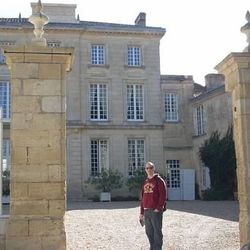

Château Canon
Saint-Émilion Red Bordeaux Blend 2016
Drank 1/18/19 at the Union des Grands Crus de Bordeaux event in Miami. All wines from the 2016 Vintage.
Tasting pour, no formal notes taken. Most of these wines are very tight, and will require 5-15 years to really come together. Many will likely improve a few points with time.
Loads of black fruit, with impeccable balance. A bit more open than many of the wines tasted. My choice for right bank wine of the night. — 7 years ago



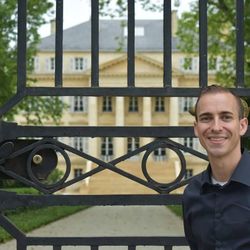
Château Haut-Bailly
Pessac-Léognan Grand Cru Classé Red Bordeaux Blend 2016
Drank 1/18/19 at the Union des Grands Crus de Bordeaux event in Miami. All wines from the 2016 Vintage.
Tasting pour, no formal notes taken. Most of these wines are very tight, and will require 5-15 years to really come together. Many will likely improve a few points with time. — 7 years ago

Cave des Grands Crus Blancs
Pouilly-Loché Chardonnay 2014
It's been awhile since I had one of these but it's a really nice change up. Well worth it. I didn't taste any oak but it was still creamy with real subtle mineral and tannins — 9 years ago
Louis Jadot
Marsannay Chardonnay 2014
Louis Jadot Marsannay Blanc 2014 $30.
Marsannay, the village marking the No. gateway to the Côte d'Or, leaving Dijon, capital of Burgundy, home to Ducs de Bourgogne, marking the beginning of Route des Grands Crus. Marsannay received its Appellation in 1987, recognition of the high quality of its wine. Pale straw with complex aromas of light stone fruits and sweet spice. On the palate some sour apple with vanilla and nutty flavors, notable high acidity on lingering finish ending with generous mineral tones. — 9 years ago
Domaine Joseph Roty
Cuvée de Champs-Chenys Gevrey-Chambertin Pinot Noir 2005
This is the Cuvee champs chenys, which is surrounded by grands crus. Red cherry, Hint of game, medium full. Gentle earthiness. No bouquet yet. But structured. Nice acidity — 11 years ago
Château Langoa Barton
Saint-Julien Red Bordeaux Blend 2012
One of the best 2012's at the Union des Grands Crus de Bordeaux tasting. — 11 years ago




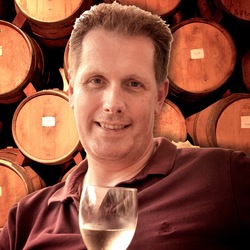



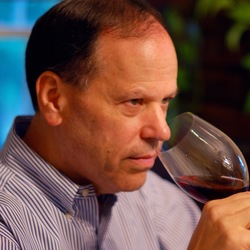

Ken Z
Drank 1/18/19 at the Union des Grands Crus de Bordeaux event in Miami. All wines from the 2016 Vintage.
Tasting pour, no formal notes taken. Most of these wines are very tight, and will require 5-15 years to really come together. Many will likely improve a few points with time.
The most closed wine of the night. More red fruit, with frim tannins. This one will likely take several years to unwind, but shows potential. Harder to taste at this stage. — 7 years ago